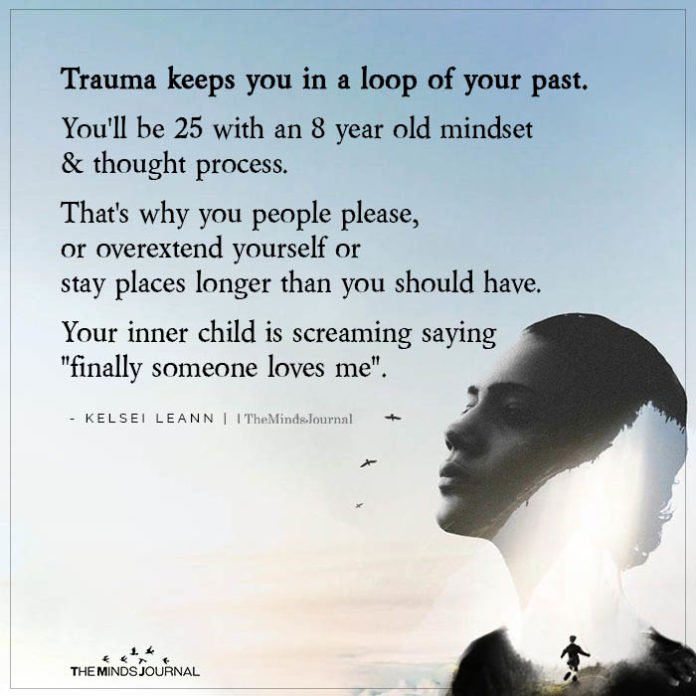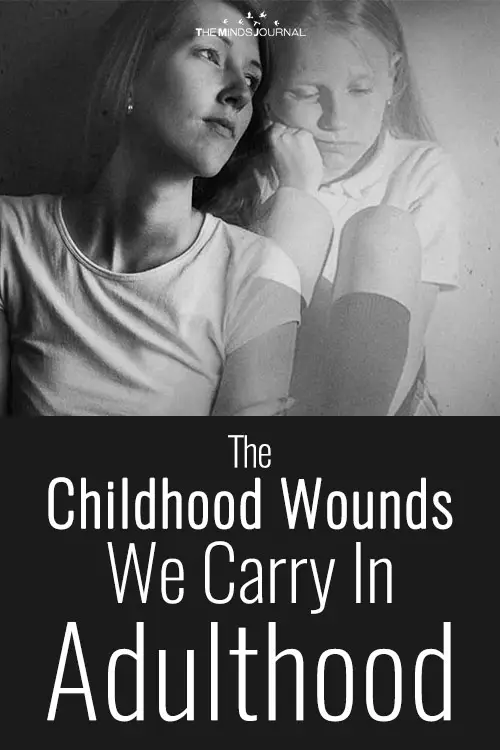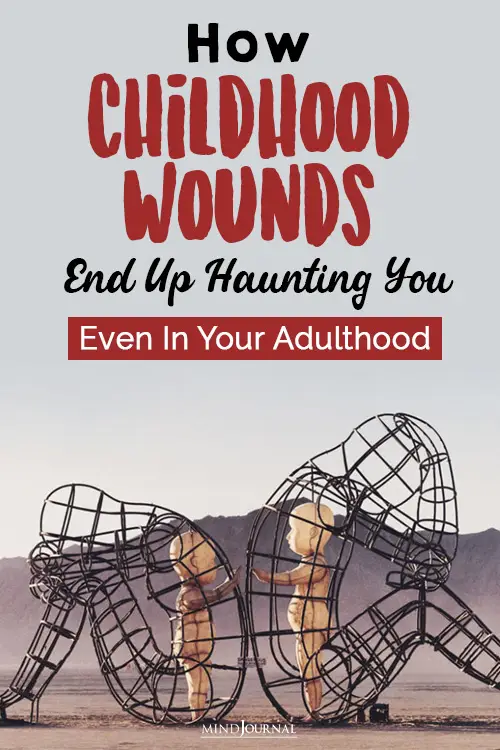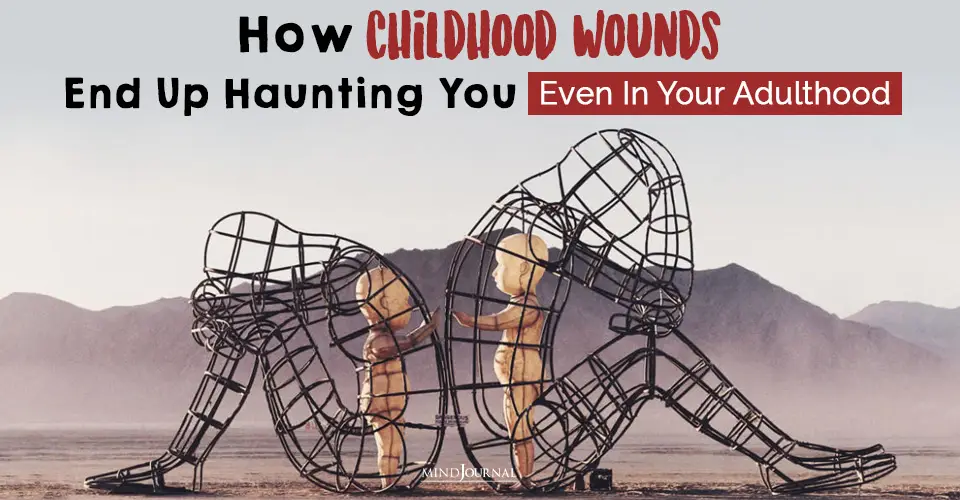“Family relationships trigger childhood wounds, and those wounds often trump our rational thinking. We can ‘rationally’ transcend the kind of primal pain that such relationships can arouse” – Marianne Williamson
Love is one of the most primitive feelings that humans can comprehend. During childhood, the emotional connection we develop with those around us plays a major role as to how and what we become in our adulthood.
Each and every child irrespective of where they come from, or how they are, have a few basic needs- they want to feel protected, respected, allowed a certain amount of freedom and most importantly, be loved. Emotional distress and emotional neglect in their growing years can be caused by multiple factors such as an emotional disconnect with parents, unhealthy sibling rivalry, over-controlling guardians, and being burdened by the expectations of their parents.
Read 3 Types Of Childhood Emotional Wounds That Keep You Stuck In Adult Life
Emotional distress is hazardous for sensitive children
In the case of children, who are sensitive in nature, the psychological impact of being deprived of love is even more prominent. They have intense emotional responses to every event happening around them. Thus, if they face any amount of emotional trauma, it triggers intense feelings and they end up being emotionally damaged permanently.
On the outside, all the people who were emotionally deprived as a child might seem alright because all their basic physical needs such as clothing and food are being met. But the lack of recognition makes the invisible emotional wounds bleed.
Parents should never tell their children things such, ‘You are trash!’ or ‘You will never be good enough!’, no matter what mistake they might have made.
One of the most common childhood wounds is being deprived of love and made to feel ‘useless’ by parents. Constantly being underappreciated and undermined while growing up, delivers a huge blow to one’s self-esteem. Often, children who are deprived of love, grow up into adults who find it difficult to even imagine that they are worthy of being loved and that they deserve genuine love.
They feel like whatever they do, there will always be a part of them that will stop them and also other people, from building an emotional connection with them.
The self-deprecating feeling that develops due to the lack of love generally leads to loneliness. The individual’s experiences with the people closest to them, while growing up, ignite major trust issues. They doubt if they will ever be able to receive love at any level and tend to distrust people who actually take the initiative. All because their parents and their family made them feel unlovable.
Due to childhood wounds, making friends becomes extremely difficult for them as they always feel that they are not worthy of anyone’s friendship and are a burden on others. Self-doubt makes it very hard for them to develop romantic relationships.
Read Growing Through Trauma: How To Not Let A Bad Childhood Define Your Life
A child is a gift of God – Appreciate them, ALL THE TIME!
As a child, one needs to be appreciated very often, in order for them to develop healthy self-esteem and have a strong sense of self-worth. Every time a child is appreciated, they become more confident and try to improve themselves. But if children’s efforts are ignored or not appreciated by their parents they naturally develop a tendency to be anxious around people and feel under-confident for the most part of their lives.
The psychological reason for most adults being under-confident is the lack of emotional attention they receive in their childhood. The reason why even for the simplest of tasks, they think a thousand times about the perception people will have about them if or not they accomplish it. Looking for validation, even from strangers, becomes very important for them to find their self-worth, and feel good about themselves.
If parents constantly make their children feel unworthy, not good enough and a burden on them, then it will swiftly lead to depression, and this depression will follow them and haunt them, well into their adulthood.
Not being loved as a child, gives birth to a constant feeling of guilt and shame within them. They develop this notion that they are not loved because it’s their fault or because maybe they are not good enough, or they are not who their parents wanted as their offspring. When these feelings are transferred to an adult, they only intensify and cause immense stress and emotional pain. They will constantly feel guilty about the smallest mistakes they make.
Overthinking and depression are the most common outcomes of such guilt. In other cases, to overcome this feeling of guilt, they might become too sensitive to the needs of those around them. They might interfere too much in other people’s lives to make sure that they love them. But unfortunately, this only ends up driving people away from them.

Parents should never make their children feel as if love is a trade
One of the worst things parents can do to their children is making them feel that they have to earn their love. Emotionally deprived children tend to believe that love is a transaction. As they grow up, they feel that in order to be loved by someone, they must be of some use to them. They think and feel deep down in their hearts that they are not supposed to be loved because of who they are but because of what they can do for the person they want to be loved by.
This often results in them getting involved in toxic and abusive relationships because they feel that being physically or mentally abused by their partner is a price they have to pay for being loved by them.
Read Core Wounds: 12 Signs You Have an Unhealed Core Wound
Wrapping Up
Healing childhood wounds is difficult but not impossible.
You need to stop being so hard on yourself, and most importantly, you need to stop believing that you don’t deserve love, or you are unworthy of love. It might be challenging at first, but you need to try and make your peace with the struggle, pain and childhood wounds you went through and tell your heart that ‘how I was treated was not my fault, and I am worthy of love.’
As an adult, you need to choose and be with people who see you as the beautiful soul you are. People who will never make you feel like you are not good enough, or you have to work very hard to be loved by them. You deserve all the happiness in life, and never let anything or anyone tell you otherwise.
One last thing, raise your children better so that they don’t have to survive with a gaping hole in their hearts.










Leave a Reply
You must be logged in to post a comment.